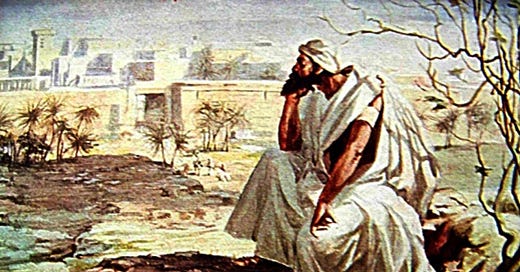When God saw what they did, how they turned from their evil way, God relented of the disaster that he had said he would do to them, and he did not do it.
Jonah 3:10 (ESV)
Jonah arrived at Nineveh. He didn't want to be there. The nation of Assyria and his people were enemies. He had no great love for these people. In fact, he wanted God to wipe them off the face of the earth.
But God had a different plan. The ever-gracious and merciful Yahweh wanted the people of Nineveh to repent, and He was ready to forgive them.
Jonah, in his pride, forgot about a similar time in Israel's past. After the Israelites made a golden calf at the foot of Mount Sinai, God was ready to end them. He proposed a plan to Moses, one in which he would be the patriarch of a new nation, perhaps one that would be easier to deal with.
It was only the intervention of Moses that spared the people. Moses asked God to remember His promise to Abraham, Isaac, and Jacob. Thus, God relented of the evil He wished to bring upon Israel.
Instead of wishing death and destruction on his enemies, Jonah should have reflected the grace and mercy of God. As humans, it is natural to wish the worst for our enemies and those who may just be different from us.
In Romans 12, we are commanded to demonstrate genuine love, abhorring that which is evil and clinging to that which is good. Believers are commanded to love one another, seeking to outdo one another in showing honor. This love ought to extend even to those we consider to be enemies. Instead of returning evil for evil, we are to do good to our enemies, leaving vengeance to God. Christians must overcome evil with good.
If you want to see the rest of my Miscellanies notes, click the button below:
If you want to stay up to date with my posts, click the button below to subscribe:
Soli Deo Gloria,
Caleb Friske





